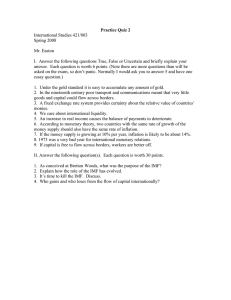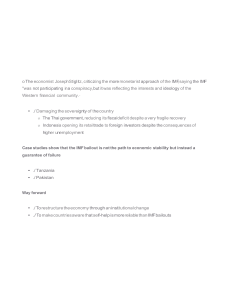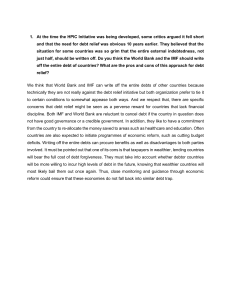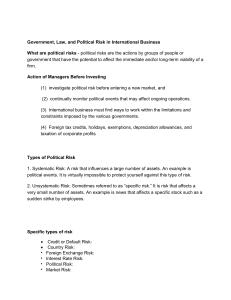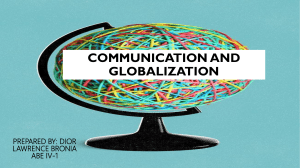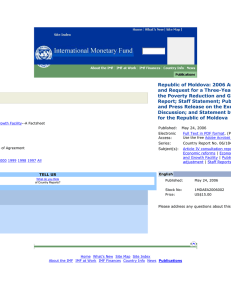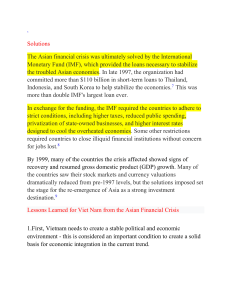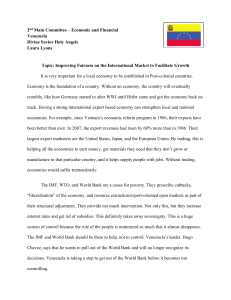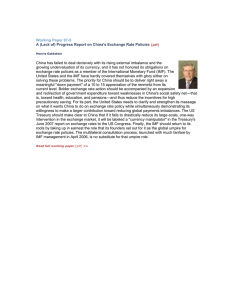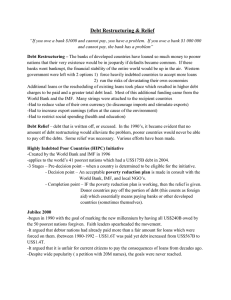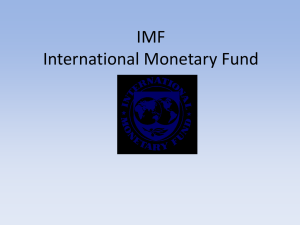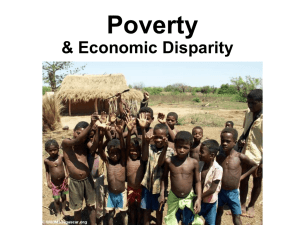World Trade Organization (WTO)
advertisement
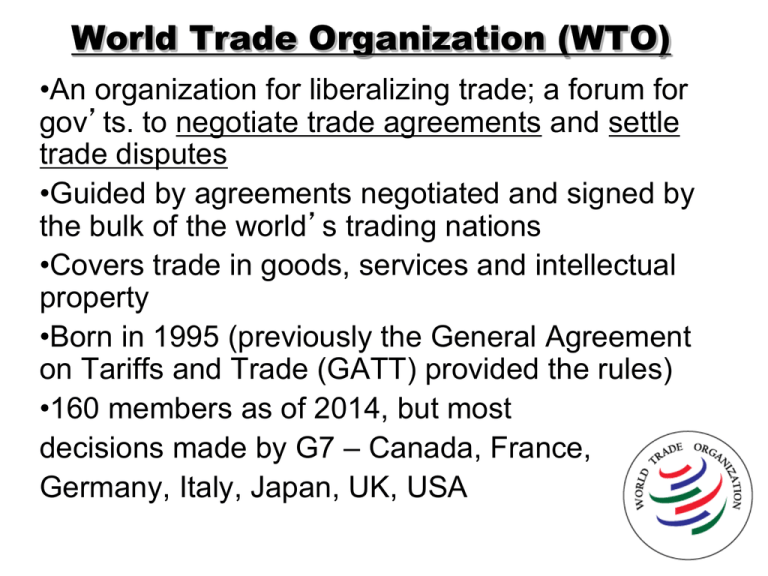
World Trade Organization (WTO) •An organization for liberalizing trade; a forum for gov’ts. to negotiate trade agreements and settle trade disputes •Guided by agreements negotiated and signed by the bulk of the world’s trading nations •Covers trade in goods, services and intellectual property •Born in 1995 (previously the General Agreement on Tariffs and Trade (GATT) provided the rules) •160 members as of 2014, but most decisions made by G7 – Canada, France, Germany, Italy, Japan, UK, USA World Bank – est. 1944 • Goals are to end extreme poverty (those living on less than $1.25/day) and promote growth of the bottom 40% of every country • Source of financial and technical assistance to developing countries • Offers low-interest loans, credit, grants, training and expertise to governments and private sectors in fields of education, health, public administration, infrastructure, resource management, etc. • Promotes foreign direct investment into developing countries International Monetary Fund (IMF) • 188 members • The IMF's primary purpose is to ensure the stability of the international monetary system—the system of exchange rates and international payments that enables countries (and their citizens) to transact with each other. • Advises member countries and offers financial and technical assistance to improve economies HIPC – Heavily Indebted Poor Countries HIPCs are eligible for debt relief (offered by IMF and World Bank) b/c they face an unsustainable debt situation even after traditional debt relief measures have been attempted.
